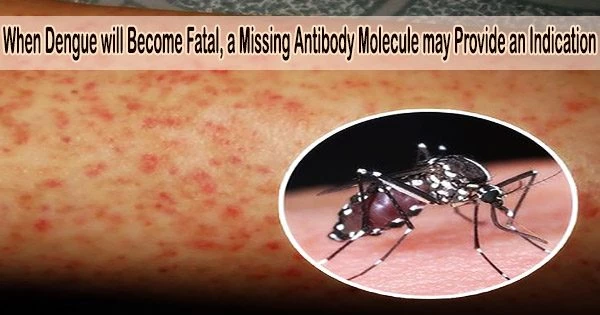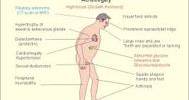Dengue is a viral infection caused by the dengue virus, which is transmitted to humans through the bites of infected mosquitoes, primarily the Aedes aegypti mosquito. It is a significant public health concern in many tropical and subtropical regions of the world.
A first infection with the dengue virus usually results in very minor symptoms, but a second infection is another story. The virus can cause severe symptoms, often fatal, in a tiny percentage of those who become infected again.
“The main hypothesis for some time has been that antibodies generated the first time around, instead of providing protection against disease, can actually exacerbate it,” says Stylianos Bournazos, research assistant professor at Rockefeller. “But even in secondary infection, we see a wide range of symptoms so the presence of antibodies alone cannot explain why only some cases turn deadly.”
Now, new research from the lab of Jeffrey V. Ravetch and the Pasteur Institute in Cambodia, which was published in Science, suggests that the susceptibility and severity of dengue fever are related to a particular form of antibody that lacks a certain sugar, fucose, on its stem. This impacts the antibody’s so-called Fc region, which is responsible for binding and passing instructions along to other immune cells.
The findings suggest that the fucose status of antibodies represents a robust prognostic tool. It can help us identify patients at risk of severe illness so they can receive appropriate medical care early on.
Jeffrey V. Ravetch
There is no specific antiviral treatment for dengue, so management focuses on relieving symptoms and preventing complications. It is important to rest, drink plenty of fluids to prevent dehydration, and take acetaminophen for fever and pain relief.
Patients with severe dengue fever had exceptionally high amounts of these fucose-less antibodies, according to earlier findings from the Ravetch lab. It was unclear, though, whether the lack of fucose was a result of a serious illness or what caused it.
The scientists discovered that those who ultimately got the most severe disease also had noticeably greater levels of fucose-deficient antibodies at the time of hospital admission by examining samples from a range of dengue patients early in the commencement of their condition.
Due to this alteration in their structural makeup, the antibodies bind to white blood cells excessively tightly, causing inflammation to worsen and the loss of platelets that are essential for blood clotting. As a result, severe dengue sickness frequently exhibits hemorrhagic fever and shock syndrome.
“The findings suggest that the fucose status of antibodies represents a robust prognostic tool,” says Ravetch, Theresa and Eugene M. Lang Professor and head of the Leonard Wagner Laboratory of Molecular Genetics and Immunology. “It can help us identify patients at risk of severe illness so they can receive appropriate medical care early on.”
Preventing mosquito bites is crucial in preventing dengue. This can be achieved by using mosquito repellents, wearing protective clothing, and using bed nets. Additionally, efforts to control mosquito populations and eliminate breeding sites, such as stagnant water, are important in reducing the transmission of dengue.
















